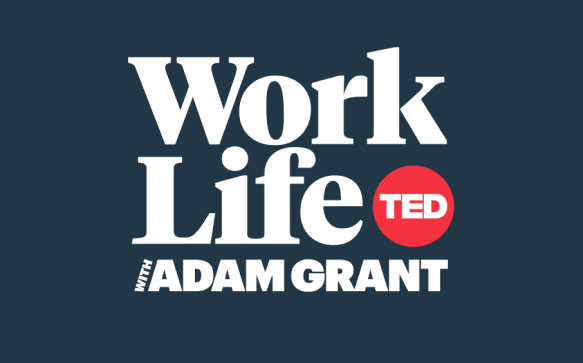Podcast: WorkLife TED with Adam Grant
Career Decline Isn’t Inevitable
May 4, 2020
You might be completely turned off when listening to this podcast but stick with it. At around eight minutes in, it gets more interesting and inspiring.
Adam Grant of the WorkLife TED with Adam Grant podcast interviews Arthur Brooks, age 56, who has a successful career as a professor of economics and social entrepreneurship at Syracuse University and has authored 11 books. He also authored a piece in the Atlantic called, “Your Professional Decline is Coming (Much) Sooner Than You Think”.
Obviously, that title in the Atlantic grabbed people’s attention. Brooks’ hypothesis is that there are two main ways of acquiring intelligence. He says “fluid” learning is where people are more agile and quick (aka young) and that “crystallized” intelligence is more about having a library of intelligence (aka experienced individuals). While both are good, he articulates the “crystallized” version as having a depth and breadth and that people with it have greater emotional intelligence and will-power. All great attributes to have at work right?
He goes on to say that since people with crystallized intelligence have accumulated knowledge over the years, they have the ability to transmit their knowledge to others, and he recommends finding a career that values this type of intelligence as they get older. He encourages people to find roles that require - and reward - teaching and mentorship.
Want a more expansive view? Adam Grant challenged him and said he believes it’s about an individual’s motivation and that a mid-career person has the ability to stick with something and succeed. He feels this is a better measure of success. The people he interviews in the podcast are amazing.
Key Insights:
- Curiosity is the key factor that helps you find creative piques as you age
- Find something new to explore
- Get fully immersed
- Trial and error is important. Adopt the “test it and learn it” approach
- It’s never too late to reinvent yourself
By the way, other people have disagreed with Brooks’ view as well. Chris Farrell a contributor at Forbes, wrote, “But the tight link Brooks makes between aging and decline is a false one. Research by noted economists, sociologists, neuroscientists, scholars of creativity, students of innovation, and other disciplines is inclined towards a very different narrative about the second half of life than Brooks’ declinist view.”
As Adam says, “Don’t move to the slow lane. As you get older, marathoners know how to persevere.” Damn straight.
Emily’s vision for illume hire developed as part of her journey from a startup-curious sales and media professional to co-founder and CEO. Her passion is to provide resources to support professionals with 20+ years experience. Emily was part of the founding leadership team of Age Equity Alliance, a non-profit focused on the benefits of an intergenerational team.


